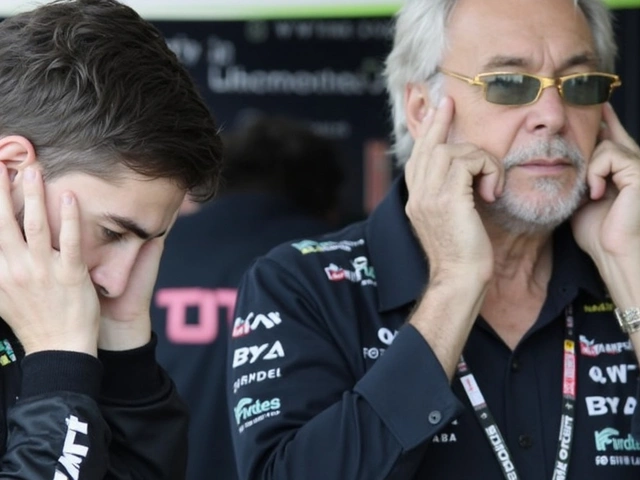Automotive News & Analysis – Your Quick Guide to the Latest Motor Updates
Welcome to the hub where every motor enthusiast finds something useful. Here you’ll get straight‑to‑the‑point news, no jargon, just the facts you need to keep your ride running smooth and your racing knowledge fresh. From fuel debates to race‑track quirks, we break it down so you can decide what matters for you and your vehicle.
Fuel Additives: What the Supermarket Row Means for Your Engine
A seasoned UK mechanic with 17 years under his belt recently warned drivers that supermarket fuel can miss out on the detergents you find in branded pumps. Those detergents help keep engine parts clean, reducing deposits that can eat away at performance and cost you more in the long run. He suggests alternating between premium and standard fuel to get the best of both worlds. Supermarkets push back, saying their fuel meets strict regulations, but the mechanic’s point still stands – not all fuel is created equal.
So, how should you choose? First, look at the fuel specification label. If it mentions “detergent additive package,” you’re likely getting that extra cleaning boost. Second, consider your driving style. Heavy‑load or high‑rev driving benefits more from premium fuel, while everyday commuting can stick with standard. Lastly, don’t forget to check your owner’s manual – manufacturers often advise a specific octane range for optimal performance. Following these simple steps helps you avoid costly engine deposits without over‑spending.
Why Road Races are Rare in the US – The Real Reasons
Ever wondered why you don’t see as many road races in the United States as you do in Europe? The short answer is strict legal rules and high insurance costs. Organizers need special permits to close public roads, and that paperwork can take months. Add in the expense of shutting down busy highways, and you’ve got a massive price tag that many events simply can’t afford.
The U.S. also has a massive land area, which means races often have to travel long distances between venues, raising logistics costs. Safety concerns play a big part too – authorities want to make sure spectators and drivers are protected, so they demand extensive safety barriers and medical crews. All those requirements add up quickly. Still, there are niche events that manage to pull off road races, especially in states with more flexible regulations or in dedicated race parks that mimic public roads.
If you’re a fan looking for a chance to watch or join a road race, start by checking local motorsport clubs. Many of them run “track days” on closed streets that give you a taste of real‑world racing without the massive legal hurdles. Staying connected with these groups can land you insider info on upcoming events.
Keep coming back to this page for fresh automotive news, practical tips, and honest analysis. We’ll keep covering fuel debates, race‑track quirks, and anything else that fuels your passion for motor life. Got a topic you want us to explore? Drop a comment and let us know – we love hearing from fellow gearheads.
Supermarket fuel additives row: UK mechanic warns drivers, retailers push back
A UK mechanic with 17 years’ experience says supermarket fuel often lacks the detergents found in branded fuels, risking engine deposits and long-term costs. He advises alternating between premium and standard fuel. Supermarkets reject the claim and say their fuel meets strict standards. Here’s what additives actually do, what the rules say, and how drivers can decide.
Why are there no road races in the United States?
Contrary to the notion, there are indeed road races in the United States, but they aren't as prevalent or as widely recognized as those in other countries. This is primarily due to strict legal regulations and safety concerns that make organization and execution of these races quite challenging. Additionally, the vastness of the US terrain and the cost involved in shutting down public roads for races contribute to their scarcity. High insurance costs and the risk of legal issues if accidents occur also play a part. Yet, despite these hurdles, certain professional and amateur road races do take place, attracting a niche audience.







